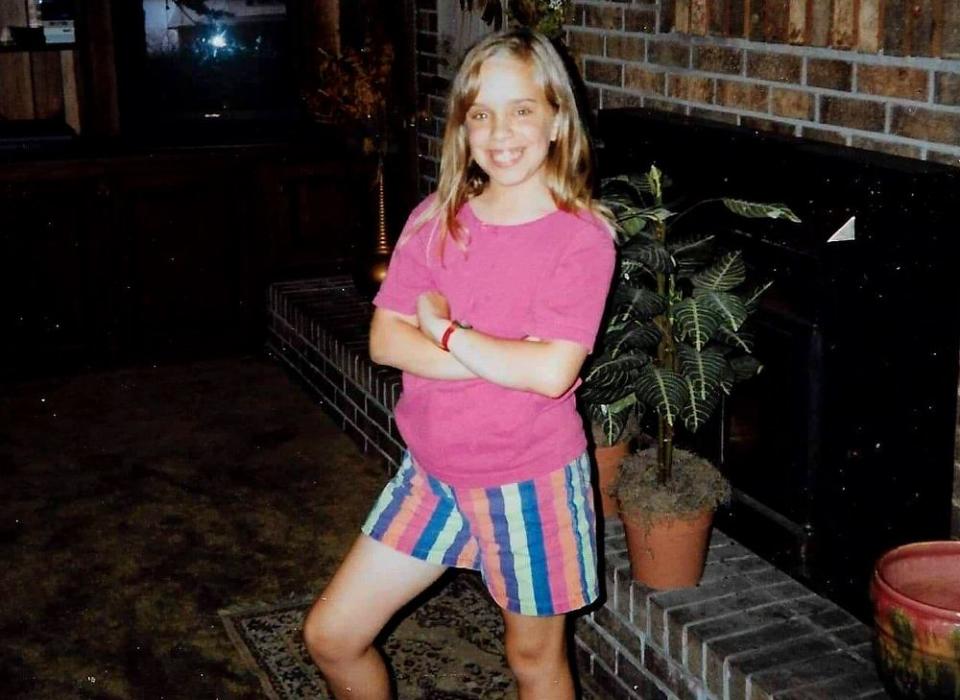Mom of 4 Who Is Covered in Thousands of Tumors Says 'Every Day is a Battle'

The thought of leaving her house often leaves Ashley Jernigan paralyzed with fear.
She’s not shy. The single mother of four from Montgomery, Alabama, loves to meet new people, go bowling with friends, and take long walks outside.
It’s the strangers’ staring and cruel comments that stop her from crossing the threshold. Jernigan, 35, was born with an unidentified strain of neurofibromatosis, a rare genetic condition that leaves her skin covered in thousands of thick, painful tumors.
“Every day is a battle,” she tells PEOPLE. “People think I have AIDS, they refuse to take my order in restaurants … it makes me feel like, ‘Why was I even born?’”
Neurofibromatosis 1 affects about 100,000 people throughout the United States, and only a few million in the world, according to Dr. Kaleb Yohay, the director of NYU Langone’s Comprehensive Neurofibromatosis Center. Patients either get the disorder from their parents or a random genetic mutation.
RELATED: Texas Baby Born Without Skin Celebrates First Birthday on New Year’s Day
There’s a strong link between cancer and neurofibromatosis 1, the most common form of the disorder, Yohay tells PEOPLE. Women especially face a high risk of developing breast cancer.
People suffering from neurofibromatosis 1 also face a shorter life expectancy, typically up to 15 years.

Jernigan inherited the condition from her mother, who died from cancer when Jernigan was young. When she was 13 years old, she started to notice tumors growing on her knees and legs.
The tumors multiplied and grew more painful once she became pregnant with her first child, Darnell, when she was 20 years old.
Pregnancy can intensify neurofibromatosis as hormone changes trigger tumor growth. “Unfortunately, it’s fairly common for women with NF1 to develop new tumors or increase the growth rate of the ones already there when they’re pregnant,” Yohay says.
For Jernigan, the number of tumors went up with each pregnancy.
“It affected me pretty bad, because they started appearing in my face, my neck, my arms … when in the beginning, before I had my first child, you could only see them if I took my shirt off,” she says. “And, I’ve noticed some of the moles I’ve had previously have gotten larger.”

Jernigan’s worsening condition has made it difficult to find work. While she attended college and has applied for several jobs, she is often rejected because of her appearance.
“Managers won’t hire me because they think I’m contagious and going to scare customers away,” she says.
There is no definitive cure for neurofibromatosis. Patients can have tumors surgically removed, though tumors can grow back. Others turn to opioids and pain medication, or alternative therapy like meditation or acupuncture to manage the pain.
Jernigan has had several tumors removed, only for them to grow back larger. She wants to try surgery, but can’t afford the procedure and fears the painful recovery. And while the tumors are benign, doctors are monitoring one on her ribcage for signs of cancer.
The debilitating pain has started to interfere with her daily life and happiness. Semi-frequent migraines keep her in bed for hours, and spinal cysts have made standing and walking uncomfortable.
RELATED: A Day in the Life of a Teenage Girl Who Can’t Make New Memories After Accident 2 Years Ago
Living with neurofibromatosis has damaged her dating life, too — she hopes to fall in love and get married, but dates are “disgusted” once she reveals her skin condition, she says.
Misconceptions about neurofibromatosis — that it’s contagious, that it’s a sexually transmitted disease — often exacerbate bullying and lead patients to feel anxious, depressed and isolated, Kim Bischoff, executive director of the Neurofibromatosis (NF) Network, says.
“Unfortunately these feelings are common in the NF community,” she tells PEOPLE. “Aside from the stress of having a chronic medical condition, you feel depressed because you’re physically different.”
RELATED: The Bachelorette’s J.P. Rosenbaum on His ‘Scary’ and Rare Disease: ‘I Am Lucky to Be Okay’
Bischoff once met a 60-year-old woman with neurofibromatosis who was afraid to walk to her mailbox. “People can live completely isolated because of NF’s effects,” she says.
Jernigan’s son Darnell, 15, is starting to show signs of neurofibromatosis: café au lait birthmarks, the color of coffee, dot his skin. Jernigan is afraid to test her other children because she fears the results, she says.
Lately, Jernigan has sought the support of local disability advocacy groups, and started openly sharing her struggles with neurofibromatosis with her friends — they’ve encouraged her to be more confident and leave the house to do things she loves, like cooking and dancing. Those are the good days, but Jernigan struggles to stay positive.
“A lot of the time I look in the mirror and feel beautiful and good about myself, but there’s always days where I go outside and think, ‘What’s someone going to say to me today?’ and I get so angry … I just want to feel normal,” she says.
Instead, Jernigan focuses on her kids.
“They really make my days,” she says.

